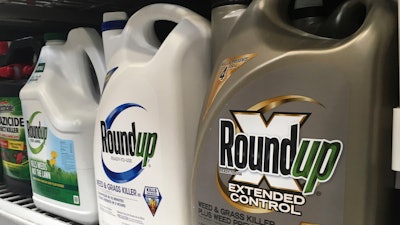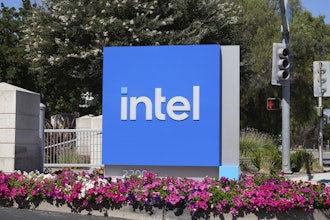
NEW YORK (AP) — Bayer, the pharmaceutical and biotechnology company, has agreed to pay $6.9 million to settle allegations by New York's attorney general that its Monsanto unit made false and misleading claims about the safety of the weedkiller Roundup.
The sum comes on top of the billions of dollars Bayer has already paid to settle lawsuits claiming Roundup, one of the world's most widely used herbicides, causes cancer.
The lawsuit by New York Attorney General Letitia James focused on advertising by Monsanto, which was acquired by Bayer in 2018, saying Roundup “won’t harm anything but weeds” and does not threaten the health of animal wildlife.
James said those claims breached a previous settlement New York state reached with Monsanto two decades ago, in which Monsanto agreed to stop making unsubstantiated claims regarding the safety of Roundup products containing glyphosate.
“Pesticides can cause serious harm to the health of our environment, and pose a deadly threat to wildlife, including pollinators and other species vital to agriculture,” James said in a statement. “It is essential that pesticide companies — even and especially the most powerful ones — are honest with consumers about the dangers posed by their products so that they can be used responsibly.”
Bayer, which insists that Roundup is safe to use, said it was “pleased” to resolve the litigation. The company noted that the state's legal claim focused on advertising practices, not on health risks to humans, “and made no findings regarding the safety of Roundup products and no scientific conclusion that they have caused harm to the environment including pollinators or aquatic species.”
The company said the attorney general had relied on outdated scientific studies in bringing the claim.
Glyphosate has been the subject of scrutiny and scientific debate for years. The France-based International Agency for Research on Cancer, which is part of the World Health Organization, classified it as a “probable human carcinogen” in 2015.
The U.S. Environmental Protection Agency found in 2020 that the herbicide did not pose a health risk to people, but a federal appeals court in California ordered the agency last year to reexamine that ruling, saying it wasn't supported by enough evidence.
The millions of dollars that Bayer and Monsanto will pay to the New York attorney general’s office will go toward remedying the impacts of environmental toxins or pollution on pollinating insects and aquatic species.
The settlement also requires the companies to immediately remove or discontinue any advertisements that represent Roundup products containing glyphosate as harmless, nontoxic or free from risk to wildlife.





















